LAUTECH don advocates incr’sed budgetary allocation for water ministry, unveils safest distance between well, ‘soak-away’ … celebrates golden jubilee
Femi OGUNLANA
An academic, Professor Olakunle Samson Ojoawo of the Ladoke Akintola University of Technology (LAUTECH), Ogbomoso, Oyo state, has urged the federal government to ensure increase in annual budgetary allocation to the ministry of water resources saying this will drive Nigeria towards provision of drinkable water to its citizens.
Advertisement
Professor Ojoawo made this plea July 4 while delivering the 58th Inaugural Lecture of LAUTECH, titled, “Water, water everywhere, but not a drop to drink: Sustainable Environmental Engineering Techniques as panacea,” held at The Great Hall of the institution.
He noted that only by deploying a great deal of efforts can Nigeria achieve the Sustainable Development Goal (SDG) No. 6 by the year 2030 as envisaged. He bemoaned what he called investment of a meagre 0.42% of the gross domestic product (GDP) in water resources infrastructure sector saying this is a far cry from the 2.7% or annual US$10 billion recommended under the SDG 6.
“Achieving the Sustainable Development Goal No. 6 in Nigeria by the year 2030 requires extraordinary efforts. According to WHO, only about 0.42% of Nigerian GDP has been invested in the Water Resources infrastructure sector between 2006 and 2010 (WHO, 2014). As of the year 2020, only N100 billion budget was allocated to the Federal Ministry of Water Resources,” he said.
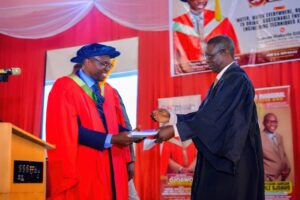
“Meanwhile to adequately provide access to sustainable and safely managed water services under SDG 6, Nigeria must invest up to 2.7% of its current GDP or US$10 billion annually to Water, Sanitation and Hygiene (WASH) (2021 NSE Nigerian Infrastructure Report Card). This ambition is most essential for rural water supply and sanitation where the gap for improved services is about 70% in line with UNICEF report. I therefore call on the Federal Government of Nigeria to focus more on implementing the recommendations of WHO in this regard.”
The don emphasized only good drinking water is life, while canvasing provision of potable water be made a prime focus of governments at all levels. He also condemned putting of water resources sector under infrastructures along with others, reiterating it is imperative the sector attracts higher budgetary allocation annually.
“Provision of potable water should be made as a cardinal focus of Governments at Local, State and the Federal levels, beyond mere campaign stages of the present situation. An independent annual budgetary provision for water resources should be seriously looked into. It is presently lumped up under Infrastructures (Works and Housing, Power, Transport, and Aviation sectors) all of which were for instance allocated 5% (N1.32 trillion) of the 2024 Federal Government of Nigeria’s budget.
Advertisement
“Since potable water is life, I therefore strongly call on the Government to separate and increase the budgetary allocation of Water Resources from the other infrastructures in line with the WHO and UNESCO recommended figures. There is a need to return to the general Public water supply of the earlier years as a country through the waterworks of the Water Corporation Ministries of the States and Federal Government. This is cheaper, environmentally safer and more convenient,” Ojoawo said.
The professor of water resources and environmental engineering also gave condition for accessing potable water from a well, his recommendation is that a well should be located in an upstream position, at least 70 feet away from a septic tank (commonly referred to soak-away) or a grave, positing only if this condition is met can well water be considered safe for human use. He further advised on regular water disinfection, covering of wells, personal hygiene, enforcement of water quality control measures and sensitization of the public on how to protect water from contaminants, stressing these measures would enhance safe water availability.
“In rural areas of developing countries where the use of wells may be inevitable, it is strongly recommended that all wells must be covered, possibly motorized via renewable energy sources, and sited upstream to sources of contaminants like septic tanks and graves at a distance not lesser than 70 feet away from the pollution points.
“Each household should endeavour to disinfect their wells at least once in a year. Also, personal hygiene within each household should be improved upon and always emphasized. Again there is need for constant surveillance by public health officials to enforce water quality control measures and ensure that water delivered to consumers is at all times safe and potable. These officials should organize seminars and enlightenment campaign for the populace on how to protect their water from the source to the point of consumption.”
Ojoawo who averred, “in as much as the axiom ‘water is life’ is valid,” and noted “the polluted and contaminated water would however cause disease and ailment to human and harm other biotics,” finally asserted that “only the ‘potable water is life’,” consequently noting that there are several water pollutants in the environment which endanger human’s health and so said efforts must be made to prevent water contamination.
Ojoawo who hosted family, colleagues and friends to celebrate his golden jubilee after the event at JODEB Event Centre, Oke-Anu, underlined that public waterworks should be resuscitated, remarking that medical officers and community physicians “should be involved in water planning and be members of Water Boards to offer professional advice on human health problems associated with water. We should all remember that potable water is life!”
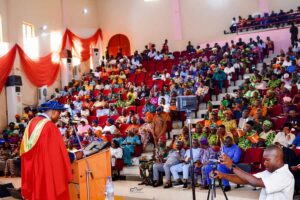
He discouraged “proliferation of tube wells and boreholes” in favour of centralized industrial water supply, thereby pointing out, “Indiscriminate sinking of boreholes is capable of triggering tectonic shear failures which may lead to faults, earth tremours or quakes over time if uncontrolled. To abate the pollution problems in shallow well water that is the commonest source for most communities in developing countries, it is recommended that aside boiling, each household should endeavour to coagulate, filter, soften and disinfect well water through affordable portable water treatment kits before consumption.”
Provision of sanitary landfills for solid waste management is also recommended in place of indiscriminate waste dumping and disposal while urging enactment of new environmental laws that would prohibit random dumping of refuse.
Advertisement
In another development, the inaugural lecturer has expressed immense gratitude to God and to the dignitaries who attended the historic event which also marked his golden jubilee anniversary, saying their attendance and supports made it a grand success.
In an appreciation message made available to ogbomosoinsightonline.com, he stated, “My soul doth magnify the Lord, and my spirit rejoices in God my Saviour – Luke 1:46-47”.
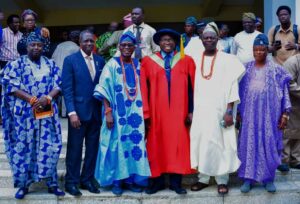
“I am glad to express my profound appreciation to God Almighty for His goodness and mercy, for making the delivery of LAUTECH’s 58th Inaugural Lecture that was my divine golden birthday gift a grand success. Halleluyah!
“I greatly thank the LAUTECH’s Pro-Chancellor & Chairman of the Governing Council and all Members of the Governing Council; the Vice-Chancellor, Registrar, Bursar, University Librarian; Chairman, Committee of Provost and Deans; Provosts of Colleges; Deans of Faculties; Deans of Postgraduate School and Student Affairs; Professors and other members of the University Senate; Fellow erudite Academics and Professional Colleagues; Members of Administrative and Technical Staff; Chairman and Members of University Inaugural Lecture Committee; Your Excellencies, Royal Majesties and Highnesses; the Diplomats; Anointed Ministers of God; my spiritual, academic and professional mentors; Friends of the University; Members of my family (Nuclear and Extended); Our various Community Leaders and members: the 25-member Volunteering Planning Committee for the 58th Inaugural Lecture; Colleagues, associates, and mentees; Eminent LAUTECH Alumni; Greatest Ladokites; Distinguished friends and well wishers from far and near, within and outside Nigeria: for the massive supports, gifts, and motivation received towards the successful 58th Inaugural Lecture.
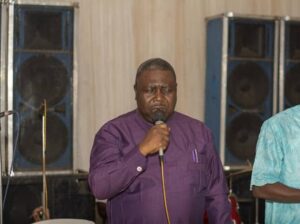
“I deeply appreciate all of you who were physically present and all those who were with me in the spirit. Thank you all for your prayers, affection and general goodwill. Deep appreciation to the President of Nigerian Baptist Convention, Daddy Revd. Dr. Isreal Akanji, ably represented by Daddy Revd Dr. Thomas Niyi Ojo, the Ogbomoso Baptist Conference President. No doubt, God has used you all to bring about the outstanding outing!
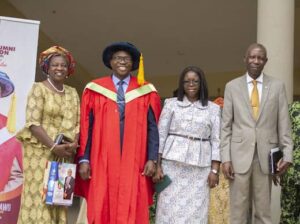
“My sincere prayer is that God Almighty shall bless you all abundantly, and we shall continue to celebrate ourselves by His grace. Amen. Once again on behalf of my lovely wife and children, I deeply appreciate you all.”
He also appreciated the Onitede of Tede Oba Abdulrauf Adebimpe Oladoyin Gbangbade Erun I represented at the event by High Chief Ismaila Akanbi, the Osi Oba Onitede of Tede.
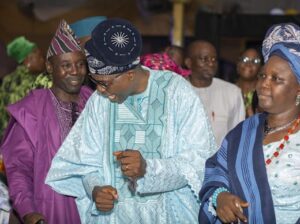
Brief profile of Prof Ojoawo
The Tede, Oke-Ogun, Oyo state-born engineer, was born on July 1, 1974. He attended primary and secondary schools in his country home, finishing the latter in 1989. He proceeded to LAUTECH in 1991 (second set), graduating in 1998 with B.Tech degree in Civil Engineering. He later obtained M.Sc and PhD in Civil Engineering at the University of Ibadan. In 2014, under the Indian’s Technical Education Quality Improvement Programme (TEQIP II) Scholarship, he was a 12-month Post-Doctoral Fellow at Department of Civil Engineering of the prestigious NMAM Institute of Technology Nitte, of the Visvesvaraya Technological University, Belgaum, Karnataka State, India.
He was appointed at LAUTECH’s Civil Engineering Department as a Graduate Assistant on December 28, 1998, and in 2016, he was elevated a Professor of Civil Engineering. He has authored (or co-authored) over eighty (80) publications in form of articles in learned journals, conference proceedings, monographs, chapters in books and books.
He has successfully supervised over 250 Bachelor’s degree and Postgraduate Diploma final year projects, and completed 11 Masters and PhD research theses supervision, while 5 others are on-going. His research activities centre on Water Resources and Environmental Engineering and has studied the pollution levels and remediation measures to surface and groundwater resources, and wastewater systems extensively in Nigeria and abroad.
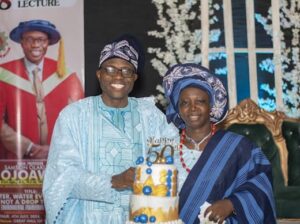
His contributions to his department in LAUTECH are immense just as he has served the university as a whole in many capacities. Prof Ojoawo has presented academic papers at nearly 30 International Conferences, Seminars and Workshops.
Also, he has been called on several occasions to serve at the state and national levels where he made and is making impactful contributions. A registered engineer with Council for the Regulation of Engineering in Nigeria (COREN) and a registered consultant with COREN, he is also a Fellow of several professional bodies including the Nigerian Society of Engineers (FNSE), of the Nigerian Institution of Civil Engineers (FNICE), of the Nigerian Institution of Environmental Engineers (FNIEE) and an Associate Member of American Society of Civil Engineers (AMASCE).
As an accomplished Registered Civil Engineering Consultant with COREN he has been involved in the engineering design, construction/supervision and monitoring of over one hundred (100) public and private functional infrastructures within and outside Nigeria. He served as the pioneer general secretary of Nigerian Society of Engineers (NSE) Ogbomoso Branch (2015-2016) and is currently the chairman of the branch and is a member of NSE National Council.
He is as well an ordained Deacon of the Nigerian Baptist Convention at Mercyland Baptist Church Ogbomoso, a Board Member of Salako Maven Foundation, and a member of the Rotary Club International and is serving as the Secretary to the Governing Council of the LAUTECH Interdenominational Chapel/LAUTECH Christian Community (2023 till date).
Professor Ojoawo has won many academic and professional awards locally and internationally and is happily married to Dr. Mrs. Olubunmi Titilayo Ojoawo, RAS, MNIAS, also an academic in the Department of Animal Production and Health, LAUTECH, and blessed with upwardly mobile children.
Note: More details in the forthcoming print edition slated for end of July
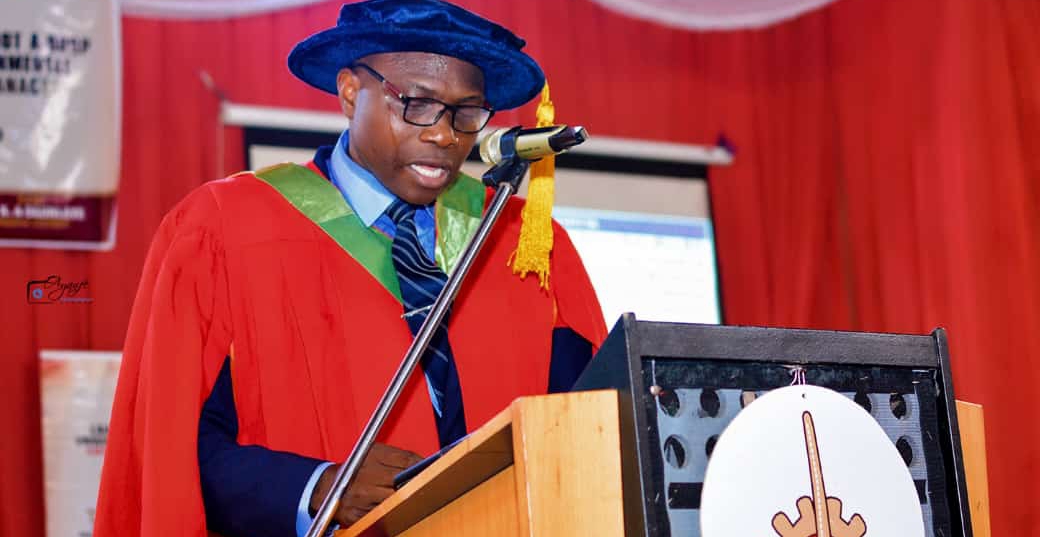



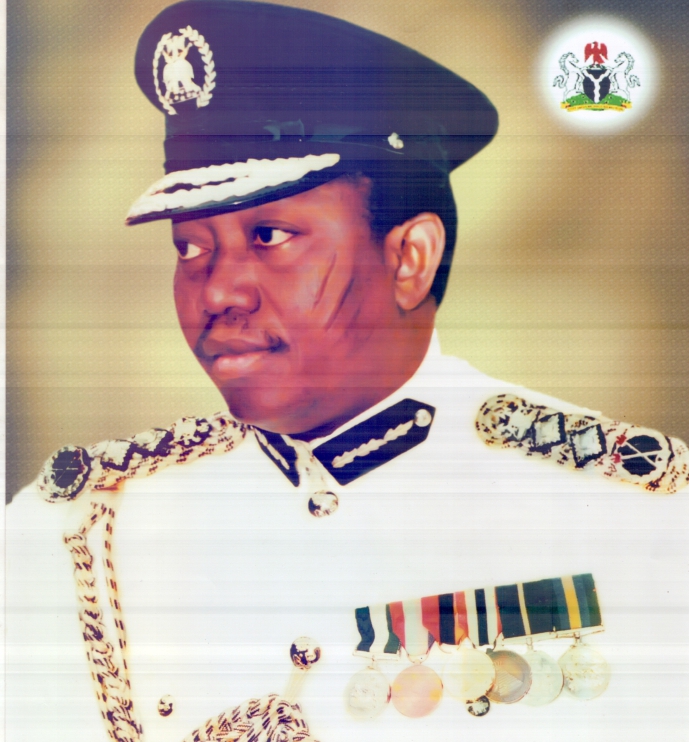
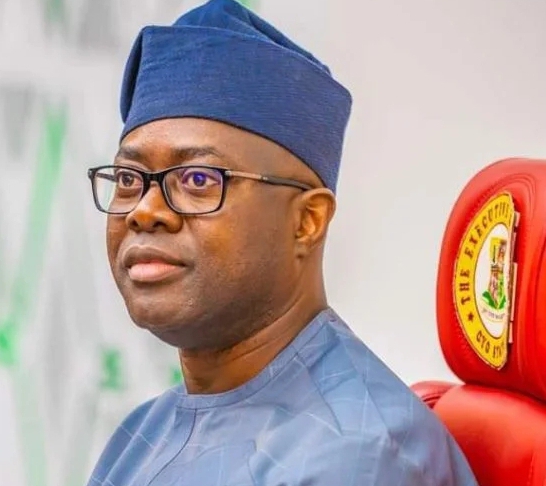
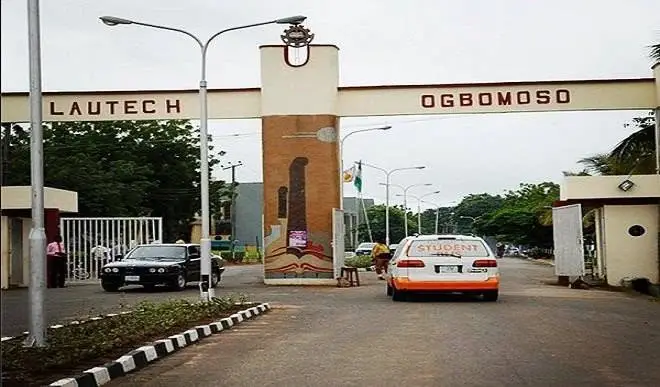
One thought on “LAUTECH don advocates incr’sed budgetary allocation for water ministry, unveils safest distance between well, ‘soak-away’”